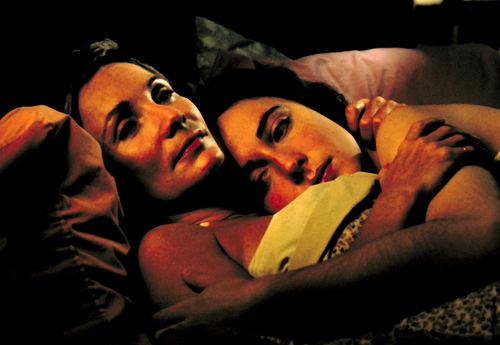
Return of the Secaucus Seven / Lianna
- This is a past program
The UCLA Film & Television Archive presents classic film and contemporary cinema in the Hammer's Billy Wilder Theater.
Part of the series John Sayles: Independent. Sayles will attend each screening for conversations and to sign copies of his new novel, Yellow Earth, which will be on sale at each venue.
Return of the Secaucus Seven
John Sayles’ experience penning novels and screenplays in the 1970s made his transition into writing-directing a natural career move. His directorial debut showcases his ken for rich characterizations and complex, Altman-esque dialogue, alongside his ability to execute a well-rounded piece on a shoestring budget. Shooting on 16mm with largely inexperienced actors lends the film a distinct realism, with dynamic crosscutting injecting the work with a bit of that energy he was so inspired by in Nashville (1975).
The catalyst is a reunion: a group of formerly radical friends who were arrested 10 years prior in Secaucus, New Jersey, on their way to a demonstration, reunite in New Hampshire at the home of Mike and Katie. With their shared experience of the sexual revolution and second-wave feminism still floating on the surface of each action and interaction, Secaucus’s ensemble cast dwells less in the nostalgia-drenched world of the film it would inspire, The Big Chill (Lawrence Kasdan, 1983), instead interested in what their youthful, shared idealism means for their present conditions, as well as their future longings. The film was added to the National Film Registry at the Library of Congress in 1997. (1979, dir. John Sayles, 35mm, color, 104 min.)
Preserved by the UCLA Film & Television Archive. Preservation funded by Anarchists' Convention. Preserved in collaboration with Anarchists' Convention from the original 16mm color negative A/B rolls and the original 35mm full coat magnetic sound track.
Lianna
Written before Secaucus and inspired by America’s increasing divorce rate, John Sayles’s intent was to tell “a traditional romantic story” in the vein of Paul Mazursky’s An Unmarried Woman (1978) and Woody Allen’s career-best romantic dramedy, Annie Hall (1977). Retaining the same realistic visual style as his first directorial effort while exhibiting a maturity of pacing and shot diversity, Lianna focuses on the dissolution of a hetero-normative marriage between student-housewife Lianna (Linda Griffiths) and philandering teacher-husband Dick (Jon DeVries), and the discovery of the pleasures found in new relationship energy—this time, a homosexual romance with a female professor (Jane Hallaren)—and our protagonist’s sexual awakening. According to Sayles, Lianna offers “an interesting story about someone who at 33 begins to grow up.” (1983, dir. John Sayles, 35mm, color, 112 min.)
Preserved by the UCLA Film & Television Archive.









